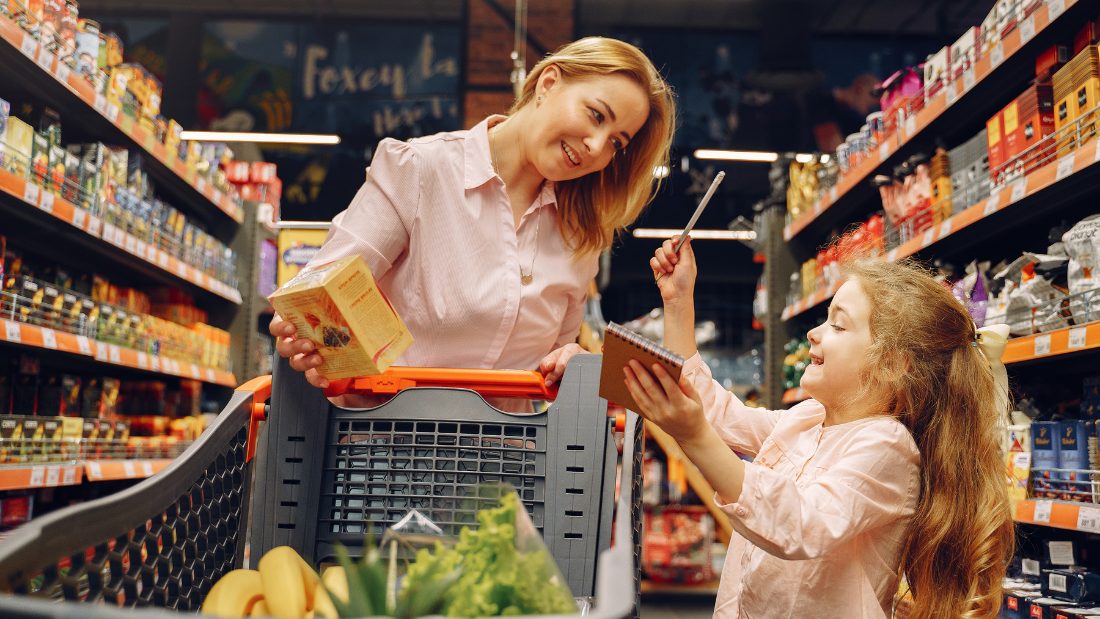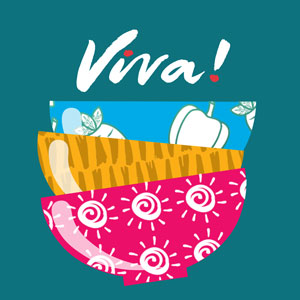VRC Team
Post published 13 January 2011
Boss it on a Budget!

You’re the boss!
Just because you are broke doesn’t mean you can’t eat well. Getting a few cheap and tasty recipes under your belt and learning how to shop clever means you stay healthy and in the black!
-
Plan meals around what’s left over in the fridge and cupboards before going shopping. Use the search box in our recipe section and find a recipe to use up those tomatoes, potatoes, cooked rice or whatever.
-
Make a list and stick to it. Give yourself a price limit and take cash. Leave the card behind – that way you’re less likely to be tempted by that extra ‘bargain’.
-
Always check the ‘per 100g’ price on the shelves – that’s the best way to work out if bargains are really bargains. Eg a BOGOF (buy one get one free) might not be as cheap as buying something similar in a Value or own-brand range.
-
Look at the bottom shelves. That’s where the real bargains often lie; supermarkets are very clever at putting the more expensive, beautifully packaged items at eye level!
- Try using value items instead of branded – try one at a time if you’re nervous. However, they are often wonderful value. (See the links below for helpful tips on what to use).
- If buying organic, shop around – prices vary massively. Organic convenience foods are very expensive but basics not so much.
- Regular fruit and veg. If you can’t afford organic, there are plenty of great bargains, from ‘use by’ bargains to local greengrocers to Aldi and Lidl and other supermarket cheapies. Find the bargains and plan your recipes around them.
- Frozen veg and fruit are often fresher and cheaper than the stuff on the shelves – they are picked at source and frozen very quickly. They also make a fantastic standby for the week(s) before payday!
- Cook as much from scratch as you can and/or shop around for tinned and packet bargains. Eg buy value kidney or chickpeas. And rinsing baked beans thoroughly is much cheaper than buying plain white haricot beans but probably best in a soup or stew rather than salad!
- Buy loose goods if you can – some health stores, high street outlets or markets sell weigh-your-own herbs, spices, wholefoods, dried fruit and all sorts. These shops are regaining popularity as more consumers want to reduce plastic and so forth. They have lots of advantages.
- They are often cheaper (but check the per 100g price, as always)
- You can recycle your own bags and containers
- You can buy in small quantities to help your cash flow, especially useful if you’re a singleton
- They help save the planet by eliminating excessive packaging
- Soup is full of goodness and a great way of using up veg at the end of the week. Experiment with different types of veg, add cooked pulses (beans or lentils) and use plenty of stock and herbs/spices.
- Freeze leftover food if you have the space – just label and date it. Pound shops are great for cheap boxes of labels.
- Freeze in bulk. Cooking dishes like curries, dhal, pasta sauces and veggie burgers in bulk saves fuel and is useful for when you are really busy. Even if you just have a small freezer, cooking a double amount of a favourite dish won’t take up much room but will save time and cash.
- Eat local or at least UK fruit and veg in season wherever possible – cheaper, tastier and better for the environment. When it comes to grains and pulses, try to buy European or Middle Eastern imports rather than from much further afield. However, remember that even vegan imports are lower carbon than local meat and dairy products!
- Use your loaf!
- If you have access to decent bread from a ‘proper’ baker’s, ask them to slice it for you. Split the loaf into two plastic bags – it will keep for ages in the freezer and you can just take a couple of slices out for toast when you need it.
- Complete loaves also freeze well. Just leave enough time to defrost or stick them on the lowest heat in a microwave.
- Make your own. If you eat a fair bit of bread, it might be worth making your own – by hand or with a breadmaker (these pay for themselves quite quickly). I’ve had my ‘magic box’ Panasonic for years and it makes fantastic bread – just put in the ingredients and leave it for a few hours.
- Ethnic shops and health stores are often cheaper for dried goods such as rice, beans and lentils, herbs and spices, tofu, noodles and the like, although packets may be larger.
- Shop at certain times for the best bargains. Moneysaving Expert link below explains supermarket bargain timetables!
- If you have a slow cooker or pressure cooker, use it – or else look for a second-hand one. You can buy new pressure cooker parts (washers and suchlike) from hardware shops or big department stores. It’ll save fuel and money. Just contact the manufacturer for a guide to the model and they’ll usually send you one free.
- Pressure cookers are fantastic for cooking beans very quickly. Cook up a whole batch and freeze what you don’t need in small bags or containers. Good for soups and stews too. If you’re nervous, there is probably a Youtube video showing you how to use your model!
- Slow cookers can be used to cook stew, soup or curries etc while you’re asleep or at work

The author
This post was written by VRC Team
Vegan Recipe Club is part of the UK’s leading vegan charity, Viva!. We have hundreds of delicious vegan recipes; from easy weeknight dinners to showstopper desserts, and everything in-between! Keep your eyes peeled for new recipes each month developed by our expert team of foodies and from guest chefs too.
